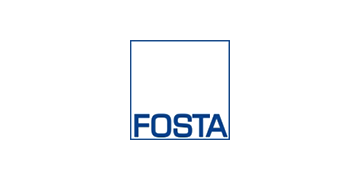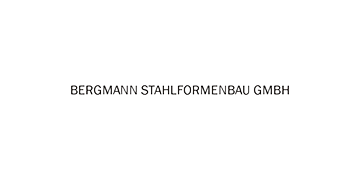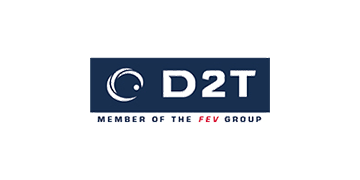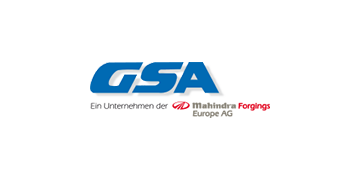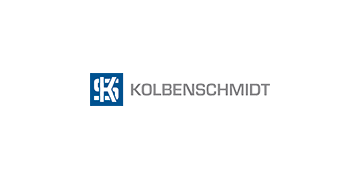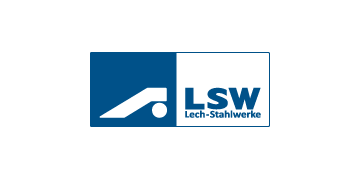| Theme | Tool- and Mold-Making, Forming technology |
|---|---|
| Project title | Forging undercuts using steel pistons as sample part (Hinterschnittschmieden Stahlkolben) |
| Project duration | 01.04.2014 – 30.09.2016 |
| Video | |
| Download |
|
| Press release |
The aim of this research project is the development of a multidirectional forging process in order to create undercuts in combustion engine pistons to facilitate subsequent machining. Undercut forging has recently been investigated in research projects, but has not established in industrial manufacturing processes yet. This project’s results shall provide the determination of process limits for multidirectional forging of a steel piston containing undercuts. A process window for a feasible industrial manufacturing process will be derived. In the particular application, chipping operations and material usage for the steel pistons manufacturing shall be decreased. The developed manufacturing process will both shorten and simplify the manufacturing process, while reducing waste material, and help to produce downsized pistons and engines at unchanged performance.
- Sorry, no events available.
Vergangene Termine gefunden
- 06.05.2014
- IPH – Institut für Integrierte Produktion Hannover gGmbH, Hollerithallee 6, 30419 Hannover
- 25.11.2014
- Hirschvogel Holding GmbH, Dr.-Manfred-Hirschvogel-Straße 6, 86920 Denklingen
- 19.05.2015
- Düsseldorf
- 17.11.2016
- IPH – Institut für Integrierte Produktion Hannover gGmbH, Hannover
- 08.02.2017
- IPH – Institut für Integrierte Produktion Hannover gGmbH, Hannover
- 24.04.2017 - 28.04.2017
- Messegelände, 30521 Hannover
- www.hannovermesse.de
- The world’s leading trade fair for industrial technology.
- 06.07.2017
- IPH – Institut für Integrierte Produktion Hannover gGmbH, Hannover
Publications about the project
Die forging enables components of very good quality with excellent technical properties to be produced economically in large quantities. However, design freedom is limited because die forging cannot produce components with undercuts. The simple applicability of undercut forging could further increase the variety of forged parts. In particular, the process can reduce the amount of machining required, thus increasing process and resource efficiency. In this context, improved technical component properties, such as increased fatigue strength, can also be expected. Conversely, these improved properties allow a reduction in weight without a reduction in technical properties. Currently, no forging processes with undercut insertion for complex forging part geometries are known. Therefore, an undercut forging process for a complex component was researched in this work. A steel piston with an undercut piston pin bore is chosen as an example component. The process was developed and optimized virtually before finally being tested experimentally.
Forging, die forging, undercuts, FEM, steel pistons
A hot forging process allows to produce parts of excellent quality and technical properties. Nevertheless, it is not possible to forge undercut geometries like piston pin bores, it is usually necessary to manufacture them in subsequent processes. Thus, an undercut-forging process was newly developed. Such a process requires a multidirectional forming tool, which is challenging due to a high clamping force of the tool during the process. With the research results, the requirements to the crucial tool components of heavy springs diminish, allowing using standard spring devices instead of large and expensive custom designed devices. The aim of this study is to analyze the clamping force, its origin, and influencing factors in order to facilitate the tool design. Therefore, in forming simulations the input parameters press velocity, initial temperature, and punch shape were investigated, and their effect on the clamping force was statistically evaluated. The press velocity has the major impact on the resulting clamping force. The initial part temperature and the shape of the punch tool showed minor but still significant effects. This combination of input parameters reduces the load and the stress on the tool, enabling to perform the process on smaller forging presses. Eventually, forging trials validated the results.
forging, undercut, FEA, multidirectional, clamping force, tool design
To be able to forge undercut parts there is a need for an appropriate multidirectional forging tool. The main issue is the high required clamp force the tool must endure. Therefore two versions of the tool were designed. They differ in the closing mechanism for upper and lower die: one is form-fit, the other one is force-fit. An analyzation reveals that the force-fit version is more advantageous.
tool, design, forging, undercut, multidirectional
For lighter and less consuming car engines the uncercut forging of a steel piston the process has to be designed at first. Therefore the process had been set up in FEA simulations and developed until the final forging sequence was found.
FEA, forging, forge, undercut, multidirectional
Pistons for combustion engines are usually made of aluminum. But increasing requirements on efficiency and performance can be met by use of steel pistons that will probably spread in the automotive industry in the next years. The pistons are forged and an expensive machining process is necessary to finish them. In the usually unidirectional forging process it is not possible to pre-forge some areas, such as the pin bores as they represent an undercut. By the help of a multidirectional forging operation it is possible to forge undercuts. This process is distinguished by a pre-forging of the pin bores and an improved material usage. Furthermore, the following machining operation will be simpler due to an easier positioning of the part. Currently, the forging tools are under development. Once they are finished they will be tested in an industrial environment on an eccentric press. The tools and parts will be analyzed concerning the quality of the parts, the die wear and the economic efficiency of this new process.
piston, steel, forging, pin bore, undercut, multidirectional






